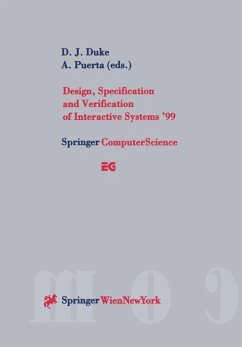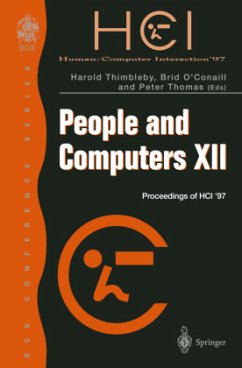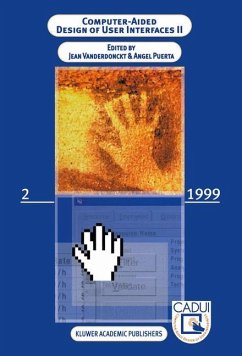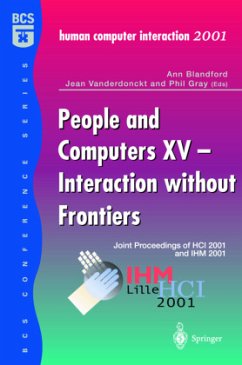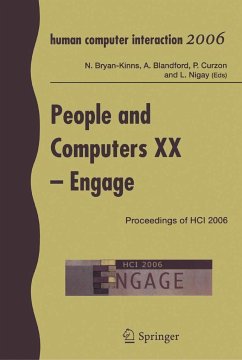
Engineering for Human-Computer Interaction
IFIP TC2/TC13 WG2.7/WG13.4 Seventh Working Conference on Engineering for Human-Computer Interaction September 14-18, 1998, Heraklion, Crete, Greece
Herausgegeben: Chatty, Stéphane; Dewan, Prasun

PAYBACK Punkte
76 °P sammeln!
The aim of IFIP Working Group 2.7 (13.4) for User Interface Engineering is to investigate the nature, concepts and construction of user interfaces for software systems. The group's scope is: - developing user interfaces based on knowledge of system and user behaviour; - developing frameworks for reasoning about interactive systems; and - developing engineering models for user interfaces. Every three years, the group holds a "working conference" on these issues. The conference mixes elements of a regular conference and a workshop. As in a regular conference, the papers describe relatively matur...
The aim of IFIP Working Group 2.7 (13.4) for User Interface Engineering is to investigate the nature, concepts and construction of user interfaces for software systems. The group's scope is: - developing user interfaces based on knowledge of system and user behaviour; - developing frameworks for reasoning about interactive systems; and - developing engineering models for user interfaces. Every three years, the group holds a "working conference" on these issues. The conference mixes elements of a regular conference and a workshop. As in a regular conference, the papers describe relatively mature work and are thoroughly reviewed. As in a workshop, the audience is kept small, to enable in-depth discussions. The conference is held over 5-days (instead of the usual 3-days) to allow such discussions. Each paper is discussed after it is presented. A transcript of the discussion is found at the end of each paper in these proceedings, giving important insights about the paper. Each session was assigned a "notes taker", whose responsibility was to collect/transcribe the questions and answers during the session. After the conference, the original transcripts were distributed (via the Web) to the attendees and modifications that clarified the discussions were accepted.





